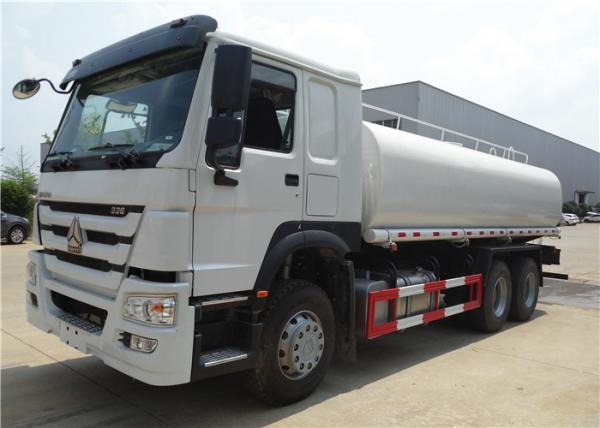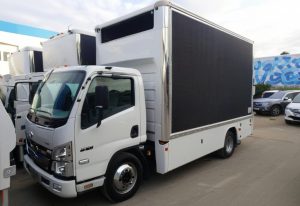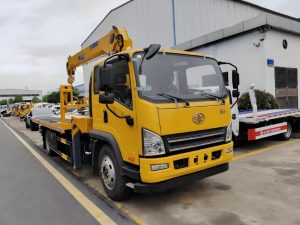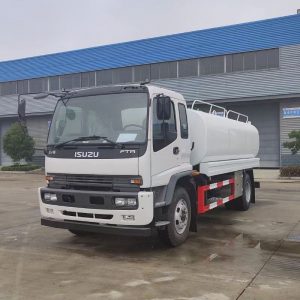Table of Contents
Toggle
Introduction
When it comes to heavy-duty vehicles, water tank trucks are indispensable in various industries. Whether you’re involved in agriculture, construction, municipal services, or firefighting, a reliable water tank truck can make all the difference. So, if you’re on the lookout for a water tank truck for sale, you’re in the right place. This guide will walk you through everything you need to know before making that big purchase.
What is a Water Tank Truck?
In simple terms, a water tank truck is a large vehicle equipped with a tank for transporting water. It’s designed to carry water from one location to another and is often fitted with a pumping system to distribute the water as needed. But that’s just scratching the surface—these trucks are much more versatile than you might think.
Water tank trucks come in various sizes and configurations, each tailored to specific tasks. Some are small and nimble, perfect for urban settings or small-scale agricultural needs. Others are massive, capable of carrying thousands of gallons of water, ideal for large construction sites or municipal services. The versatility and utility of these trucks make them a valuable asset across multiple sectors.
Uses of Water Tank Trucks
Agriculture
Imagine trying to irrigate vast farmlands without an efficient way to transport water. That’s where water tank trucks come in handy. They can carry thousands of gallons of water, ensuring your crops get the hydration they need. During dry seasons or in regions with limited rainfall, these trucks become essential for sustaining agricultural productivity. They can also be used to transport liquid fertilizers or pesticides, providing a multi-functional solution for farmers.
Construction
On construction sites, dust control is crucial. Water tank trucks are used to spray water over dusty areas, making the environment safer for workers and nearby residents. Dust can pose significant health risks, including respiratory problems, so maintaining a dust-free site is essential for compliance with health and safety regulations. Additionally, these trucks can be used to provide water for concrete mixing and other construction processes that require a steady water supply.
Municipal Services
From street cleaning to park maintenance, municipalities rely on these trucks to keep public spaces clean and green. Street cleaning involves spraying water to remove dirt and debris, ensuring cleaner roads and sidewalks. Parks and recreational areas also benefit from regular watering to maintain lush, green lawns and gardens. In times of drought or water restrictions, these trucks can deliver recycled or non-potable water to reduce the strain on local water supplies.
Firefighting
In areas without readily available fire hydrants, water tank trucks are lifesavers. They provide the necessary water supply to extinguish fires efficiently. These trucks are often equipped with high-capacity pumps and hoses, allowing firefighters to combat blazes even in remote or rural areas. Some models are specifically designed for wildfire suppression, with features like foam systems and off-road capabilities.
Features to Consider When Buying a Water Tank Truck
Tank Capacity
The size of the tank is crucial. Smaller tanks are easier to maneuver but may require more frequent refills. Larger tanks can hold more water but are less nimble. When choosing a tank size, consider the primary use of the truck. For instance, a small farm might only need a 500-gallon tank, while a large construction site could require a 4,000-gallon capacity. It’s essential to balance capacity with practicality, ensuring the truck meets your operational needs without becoming unwieldy.
Material of the Tank
Tanks are typically made from steel, aluminum, or plastic. Steel tanks are durable but heavy. Aluminum tanks are lighter but can be prone to corrosion. Plastic tanks are lightweight and corrosion-resistant but may not be as durable as metal options. Each material has its pros and cons:
- Steel: Known for its strength and durability, steel tanks can withstand harsh conditions but are heavier and can rust over time if not properly maintained.
- Aluminum: Lightweight and resistant to rust, aluminum tanks offer good performance but may dent more easily.
- Plastic: Corrosion-resistant and lightweight, plastic tanks are ideal for applications where weight is a concern, but they may not be as robust as metal tanks.
Pumping System
The pumping system’s efficiency determines how quickly and effectively you can distribute water. Look for trucks with high-quality pumps that suit your specific needs. The pump should have adequate pressure and flow rate to handle your tasks efficiently. Consider features like self-priming pumps, which simplify operation by automatically removing air from the system. Additionally, check for compatibility with different types of nozzles and hoses to ensure versatility in application.
Chassis and Engine Specifications
The truck’s chassis and engine are its backbone. Ensure they are robust enough to handle the load and terrain you’ll be navigating. Check for engine power, fuel efficiency, and overall build quality. The chassis should be designed to support the weight of a fully loaded tank without compromising stability or safety. Look for reinforced frames and suspension systems that can handle rough terrain if you plan to use the truck off-road.
Types of Water Tank Trucks
Small Water Tank Trucks
Ideal for light-duty tasks and easy maneuverability in tight spaces. Perfect for smaller farms or urban areas. These trucks typically have tank capacities ranging from 500 to 1,500 gallons and are mounted on smaller chassis. They are well-suited for applications where space is limited or where frequent refilling is manageable.
Medium Water Tank Trucks
These are versatile and can handle a variety of tasks, from medium-sized farms to construction sites. With capacities ranging from 1,500 to 3,500 gallons, they offer a good balance between size and functionality. Medium-sized trucks can operate efficiently in both urban and rural settings, providing ample water supply without being overly cumbersome.
Large Water Tank Trucks
Built for heavy-duty tasks, these trucks can carry massive amounts of water, making them ideal for large-scale operations like major construction projects or municipal services. Tanks can hold anywhere from 4,000 to 10,000 gallons or more. These trucks are equipped with powerful engines and robust chassis to support the significant weight and ensure reliable performance under demanding conditions.
New vs. Used Water Tank Trucks
Advantages of Buying New
When you buy a new truck, you get the latest technology, better fuel efficiency, and a warranty that covers repairs for a certain period. There’s also the peace of mind that comes with knowing no one else has used it before you. New trucks often feature advanced safety systems, improved emissions controls, and enhanced comfort for drivers. Additionally, financing options for new vehicles may offer lower interest rates or special incentives.
Advantages of Buying Used
A used truck can be significantly cheaper than a new one. If you’re on a tight budget, this could be the way to go. Just make sure to thoroughly inspect the truck before making a purchase to avoid hidden issues. Used trucks can offer excellent value if they have been well-maintained and come with service records. They may also depreciate more slowly than new trucks, preserving more of their resale value over time.
How to Inspect a Used Water Tank Truck
Exterior Check
Look for any signs of rust, dents, or damage on the body and tank. Ensure all lights and signals are functioning correctly. Pay close attention to the condition of the tires and brakes as well. Examine welds and joints on the tank for any cracks or signs of wear that could lead to leaks.
Interior Check
Inspect the cab for wear and tear. Check the seats, dashboard, and control panels for any issues. Make sure all gauges and switches are operational. The interior should be clean and free of any unpleasant odors or signs of neglect.
Mechanical Check
Have a professional mechanic inspect the engine, transmission, brakes, and other mechanical components. Look for any leaks or signs of wear that could indicate future problems. Test drive the truck to evaluate its performance under load conditions similar to what you’ll encounter in your operations.

Top Brands of Water Tank Trucks
When investing in a water tank truck, the brand can significantly impact the vehicle’s performance, durability, and overall value. Here are some of the top brands you should consider:
Caterpillar
Caterpillar is synonymous with durability and reliability. Known for their robust construction and powerful engines, Caterpillar trucks are a popular choice in various industries. They offer a range of models tailored to different needs, from small urban trucks to large off-road vehicles. Caterpillar’s extensive dealer network ensures that you can find parts and service easily, which is crucial for minimizing downtime.
Freightliner
Freightliner offers a range of models with advanced features and robust performance. Their trucks are designed for efficiency and longevity, making them a smart investment for long-term use. Freightliner trucks are often equipped with state-of-the-art technology, including advanced driver assistance systems (ADAS) and telematics for better fleet management. Their focus on fuel efficiency can also help reduce operational costs over time.
Kenworth
Kenworth trucks are renowned for their build quality and longevity, making them a solid investment. These trucks are engineered for performance and comfort, with features like ergonomic cabs and advanced suspension systems. Kenworth’s reputation for reliability means that you can count on their trucks to perform well under demanding conditions, whether you’re working on a construction site or providing municipal services.
Peterbilt
Peterbilt trucks combine power with efficiency, offering excellent fuel economy and strong performance. Known for their distinctive design and high-quality materials, Peterbilt trucks are a favorite among drivers who spend long hours on the road. The brand’s commitment to innovation is evident in their use of lightweight materials and aerodynamic designs, which help improve fuel efficiency without sacrificing strength or durability.
Cost Factors
Buying a water tank truck involves several cost considerations beyond the initial purchase price. Understanding these factors can help you budget more effectively and make a more informed decision.
Purchase Price
The initial cost can vary widely depending on the size, brand, and features of the truck. New trucks will obviously cost more than used ones, but they come with the latest technology and warranty coverage. When comparing prices, consider the long-term value rather than just the upfront cost. A higher-priced truck with better fuel efficiency and lower maintenance costs might save you money in the long run.
Maintenance Costs
Regular maintenance is essential to keep your truck running smoothly. Factor in costs for oil changes, tire replacements, and other routine services. The type of tank material can also affect maintenance costs; for example, steel tanks may require more frequent rust prevention treatments compared to aluminum or plastic tanks. Keeping a detailed maintenance log can help you track expenses and identify any recurring issues that need addressing.
Operational Costs
Consider fuel efficiency and other operational expenses like insurance and registration fees when calculating the total cost of ownership. Fuel costs can be a significant part of your budget, especially if your operations involve long-distance travel or frequent trips. Look for trucks with efficient engines and consider using telematics to monitor fuel consumption and optimize routes. Insurance premiums can also vary based on the truck’s value, usage, and driver history, so it’s worth shopping around for the best rates.
Financing Options for Water Tank Trucks
Purchasing a water tank truck is a significant investment, but there are various financing options available to help manage the cost.
Loans
Many banks and financial institutions offer loans specifically for purchasing commercial vehicles like water tank trucks. These loans typically come with fixed or variable interest rates and repayment terms ranging from a few years to a decade or more. When applying for a loan, it’s essential to compare offers from multiple lenders to find the best terms. Consider factors like interest rates, down payment requirements, and any prepayment penalties.
Leases
Leasing can be a good option if you don’t want to commit to buying outright. It often comes with lower monthly payments compared to loans. Leases can be structured as operating leases or finance leases, depending on whether you want to keep the truck at the end of the lease term. Operating leases typically have lower payments but require returning the truck after the lease period. Finance leases have higher payments but give you the option to purchase the truck at the end of the term.
Financing Companies
Specialized financing companies focus on helping businesses acquire commercial vehicles and may offer more flexible terms than traditional banks. These companies often understand the unique needs of industries that rely on water tank trucks and can provide tailored financing solutions. Some may offer benefits like deferred payments, seasonal payment plans, or bundled insurance options to make managing costs easier.
Conclusion
Choosing the right water tank truck involves careful consideration of various factors—from tank capacity and material to brand reputation and financing options. By understanding your specific needs and thoroughly researching your options, you can make an informed decision that will serve your business well for years to come.
Whether you’re irrigating crops, controlling dust on a construction site, maintaining public spaces, or fighting fires, a reliable water tank truck is an invaluable asset. So go ahead, take the plunge, and invest in a water tank truck that will keep your operations flowing smoothly!







